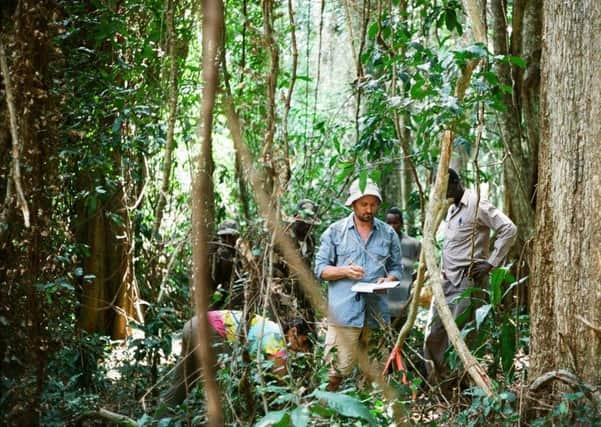Coffee at risk if no action taken to save wild plant species


Your daily double espresso or skinny latte could soon become a thing of the past, according to new scientific research.
Academics at the Royal Botanic Gardens at Kew have found that more than half of all wild coffee species are at risk of extinction, causing concern over future production of the world’s favourite beverage.
Advertisement
Hide AdAdvertisement
Hide AdAnalysis suggests 60 per cent of the 124 wild species are now in danger of disappearing. These include Arabica, the most popular commercial crop, which has now been classified as endangered.
The main causes are deforestation, climate change and a rise in pests and diseases.
The global coffee industry is worth billions of pounds and supports local communities in developing countries. It currently hinges on just two varieties – Arabica and Robusta.
The scientists warn that any loss of species could jeopardise future cultivation, which may depend on creating resilient new strains.
They say current conservation measures for wild coffee are inadequate and urgent action must be taken to guarantee the future of the brew.
“Among the coffee species threatened with extinction are those that have potential to be used to breed and develop the coffees of the future, including those resistant to disease and capable of withstanding worsening climatic conditions,” said Dr Aaron Davis, head of coffee research at Kew.
“The use and development of wild coffee resources could be key to the long-term sustainability of the coffee sector.
“Targeted action is urgently required in specific tropical countries, particularly in Africa, to protect the future of coffee. We hope our findings will be used to influence the work of scientists, policy-makers and coffee sector stakeholders to secure the future of coffee production – not only for coffee lovers around the world, but also as a source of income for farming communities in some of the most impoverished places.”
Advertisement
Hide AdAdvertisement
Hide AdSome wild coffee species have already all but vanished, with some not found in the wild for more than a century.
This is bad news for the planet, for communities and for coffee drinkers.
Craig Hilton-Taylor, is head of the Red List unit at the International Union for Conservation of Nature (IUCN), which identifies and categorises species at risk of extinction.
He says the findings raise serious environmental, economic and social concerns.
He added: “The numerous wild relatives of the commercially grown crops, such as Arabica coffee, are essential to ensure the resilience of cultivated coffee in the face of climate change and other threats.”
International coffee chain Starbucks, which uses all Arabica beans, failed to respond to a request for comment.